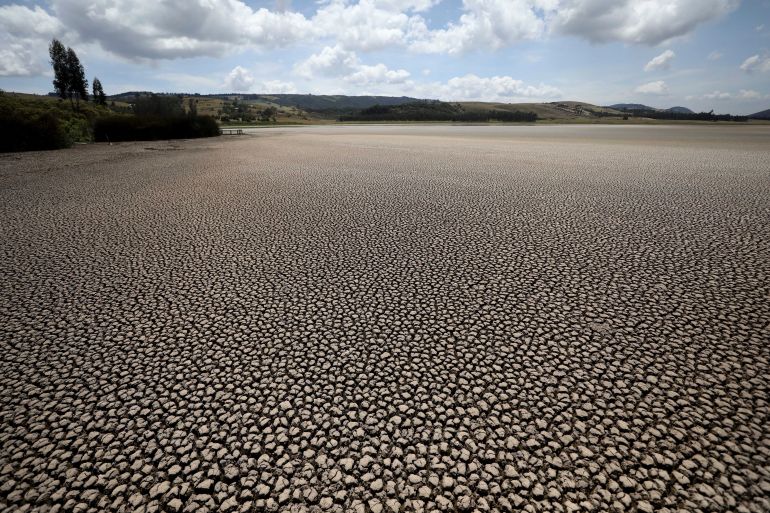UN calls for rapid, ambitious action to tackle climate crisis
IPCC’s world leading scientists say there are enough resources and knowledge to tackle the global climate crisis.

Source: By Al Jazeera
Published On 20 Mar 202320 Mar 2023
The world has the tools to reduce greenhouse gas emissions and to secure a sustainable future if more ambitious actions are taken, a United Nations report has said, noting that actions taken so far are not enough to tackle the growing threats posed by climate change.
A UN panel of scientists stressed in a synthesis report on Monday that there are multiple, feasible and effective options to adapt to climate change.
KEEP READING
list of 3 itemslist 1 of 3
ExxonMobil predicted climate change while downplaying risk
list 2 of 3
Photos: Graves sink, fisheries shrink as climate change hits Fiji
list 3 of 3
More Kenyans hit by climate change count on fish farming
end of list
“Mainstreaming effective and equitable climate action will not only reduce losses and damages for nature and people, it will also provide wider benefits,” said Hoesung Lee, chair of the Intergovernmental Panel on Climate Change (IPCC), in a statement.
The report “underscores the urgency of taking more ambitious action and shows that, if we act now, we can still secure a liveable sustainable future for all”, he added.
The IPCC is a UN body that brings together leading scientists to assess the evidence related to climate change and inform political leaders with periodic scientific assessments. The IPCC’s first main scientific input was delivered in 2014, which paved the way a year later for the Paris Agreement – a landmark international treaty on climate change.
Monday’s so-called synthesis report summarises the findings of several previous IPCC assessments and comes after a week of deliberations in Interlaken, Switzerland.
The report said that carbon emissions need to be cut by almost half by 2030 if global warming is to be limited to 1.5 degrees Celsius.
Effective and equitable conservation of about 30-50 percent of the world’s land, freshwater and ocean will help ensure a healthy world, it added.
It is also key to prioritise risk reduction for low-income and marginalised communities, read the report, highlighting the need to finance poorer nations that are the most vulnerable to climate change despite producing less greenhouse gas emissions compared with industrialised countries.
It said that from 2010-2020, human mortality from floods, droughts and storms was 15 times higher in regions that were highly vulnerable to climate change, compared with regions with very low vulnerability.
